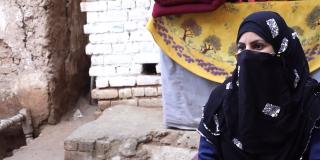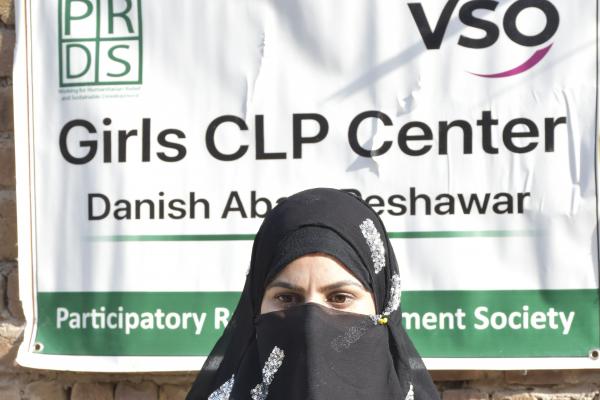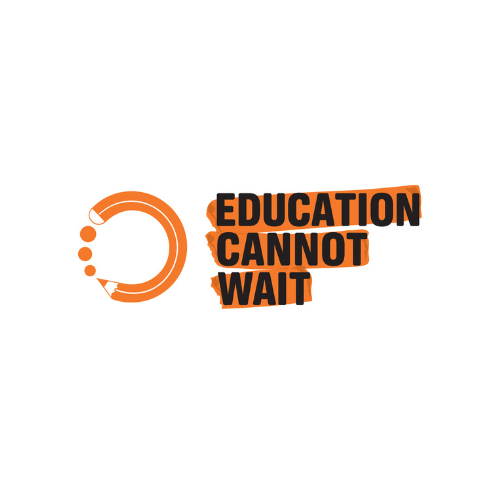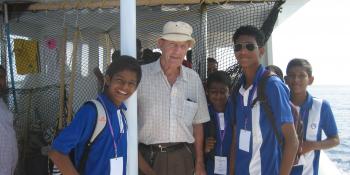
Meet 26 year old Community Volunteer Salma Rehmat from Afghanistan. Salma is a respected voice within the Afghan refugee and host community in Pakistan, and an Afghan refugee herself. Salma advocates for Afghan refugees and the host community to access a quality education as part of a Multi Year Resilience Programme funded by Education Cannot Wait.
Salma was the winner of the Volunteer Impact Awards 2023 in the Education category for her work on this programme, where she helped to provide safe learning environments to some of the most vulnerable children, including those living with disabilities and Afghan refugees.
Watch the video to learn about Salma
Meet Salma
“My name is Salma Rehmat, I am from Afghanistan and I am 26 years old. I am from a family of six with three boys and three girls.
I started volunteering with VSO in 2022 because of the struggles that women and children in the refugee population in Pakistan face in accessing learning. I wanted to bridge the gap between the Afghan refugee community, the wider Pakistani community and education institutions in Pakistan to get refugee children learning.”
Tell us about the project you're supporting
This programme aims to sustainably improve access to inclusive and equitable quality education for at least 155,000 refugee, crisis-affected and otherwise vulnerable children and adolescents across the North and West Pakistan.
Pakistan has the second highest number of out-of-school children globally, with an estimated 22.8 million children aged 3-18 not attending school.
Salma said “We started community-based classes for Afghan children who were unable to access mainstream education and mobilised women to enrol their children in local community centres and catch up classes. We helped to link girls who had dropped out of school with the Open University so they could continue their education.”
What are the main challenges that Afghan refugee children face in the community of Danish Abad in Peshawar?
“Child labour is a significant issue. These people are poor so child labour takes precedence over the children receiving an education. The children are forced to collect scrap and garbage off the streets, or to sell plastic in shops. Some of the children polish shoes.
The government schools are a long distance from their homes and private schools are not affordable for those families and children.
When we started these catch up classes in the community, and the children started learning, they felt so happy about it. The catch up centres are located in the communities verses the schools which are located outside.
Girls, especially refugee girls, are forced to get married faster when they are grown. Because of early marriage girls cannot fulfil their education, and these marriages are mostly forced without their consent.
In Pakistan we have government issued ID cards, and everyone knows in Pakistan that most of the children’s cards have expired and formal schools won't register them because they are not registered and do not have an up to date ID card.
Parents don’t have much money and they want the girls to do domestic chores. We are educating the families that where the girls might earn 300 Pakistani rupees by conducting domestic chores, they will earn significantly more by getting an education. The women are now seeing the importance of education and are enrolling their children in the catch up classes.
The Afghan refugee community has been adversely affected by flooding. They cannot afford to build concrete houses. When the recent flood hit, the masses of poor were really affected, especially the refugees living in mud houses.
The schools are also mud houses, built in muddy areas. I live in a mud house, in an area where there is heavy rainfall. Due to the unpredictable extreme weather and because of poverty and the lack of resources, we are not able to meet the basic needs of the children who have suffered a lot”.
Why are girls disproportionately affected than boys?

“Girls are not allowed to go to school because of safeguarding and security issues. Girls cannot go outside their house and go to school which is a human rights issue. If you want to study you should be allowed.
The other human rights issue are forced marriages of girls. Because of cultural constraints, some families are not even asking their girls for their consent. If the marriage is arranged the girls have to say yes. Girls futures are ignored.
When the girls get married, they will be living in someone else’s house, they will be another families responsibility so the girls are not giving their due share of property and wealth. They are not treated the same as the boys. This is another human rights violation.
Due to safety incidents with the girls, some of the families are reluctant to let their educated girls leave the home to seek employment. They are not allowed to work and earn their livelihood because of security concerns and cultural constraints. If something happens to the girls, the family is shamed.
Education is the only way out. If we don’t educate the girls about their rights, they can’t ask about their basic rights. We are requesting that education is for all and not only for boys.”
What other significant barriers are there to learning for the Afghan refugee community?
“There are two ID cards that provide proof of registration in Pakistan. The cards have recently expired for the Afghan refugee community, myself included, and we haven’t heard from the government about an extension. Our future is quite uncertain.
The educated girls are particularly vulnerable, and they might be forced to go back to Afghanistan. If I’m forced to return to Afghanistan then my safety would certainly be at risk. If these educated people can survive then education can survive.
In Afghanistan, the regime are not allowing girls after year 5 to continue their studies. If they are denied an education how will they become doctors, teachers, lawyers?
If we have no valid card then we cannot access any services from the government. Even in hospitals, Afghans are denied treatment or services because their card has expired. So most of the women are not able to go to the government hospitals and private hospitals are hugely expensive.
Women are not allowed to open bank accounts because of this issue. They cannot withdraw money from their own account without an up to date ID card. We are living with this problem.
My older brothers are in the tailoring and dress making business. When they want to buy something from the open market they are afraid because the local authority say their card has expired and they are asked for payment in return.
My younger brother wants to continue his learning and studies but his admission to school is denied because of his expired card.”

How has your perspective changed since you started work as a volunteer?
“Before becoming a volunteer, I wasn’t aware of the many issues in the community. I have learnt so much from working with members of the community and I have been proud to forge a link between the Pakistan community and the Afghan refugee community. It’s all possible because of VSO. I am pleased to be able to give something back to the community, and to become a voice of the community.
My hope for the future is to open a big learning centre, not only for the Afghan refugees, but for the wider host community where many children can attend.”
Find out more about our work to get children back to school in Pakistan
Read more

Transforming lives through education: Geoffrey’s VSO legacy
With a deep belief in the transformative power of education, Geoffrey from Norfolk, UK, has devoted his life both in the UK and abroad to making education more accessible for all.
